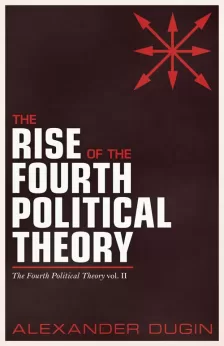This year marks the seventieth anniversary of Ray Bradbury’s iconic novel Fahrenheit 451, which was immensely popular, especially in the Soviet Union during the Cold War. Contrary to popular belief, the novel is not primarily about the tightening grip of authoritarian regimes, but rather the degradation of modern culture and society as a whole.
Ray Bradbury is a man who made science fiction popular and sought-after, not only in his native America but all around the world. Over his long writing career, he produced over eight hundred literary works, and it is probably challenging to find a language they have not been translated into. Bradbury even managed to break through the Iron Curtain that separated the USSR and the USA for almost the entire twentieth century – a rare feat for contemporary authors of that era. His novels and stories were published in the Soviet Union from the 1950s and sold in millions of copies. Among American writers, perhaps only Jack London could rival Bradbury in this respect.
In 1987, a collection titled Forever and the Earth, with a foreword by cosmonaut Vladimir Dzhanibekov, was published in the USSR in a run of 2.5 million copies. Small books in green, red, or yellow could be found in nearly every Soviet household. It is hard to overstate Bradbury’s influence on Russian and Soviet culture; even the renowned Strugatsky brothers cited him among their favourite authors who influenced their work. In 1984, the USSR also released an animated adaptation of Bradbury’s famous short story ‘There Will Come Soft Rains’, wherein the author’s pessimism regarding our towering, technological civilisation reaches its zenith. Humanity has been obliterated due to nuclear war, but a robotic ‘smart’ house continues to function as if nothing had happened, devoid of its perished owners. It is a world where robots have a place, but there is no room for humans who have been their own downfall through technology. In the Soviet animated adaptation, this story appears especially sinister. In it, the sinister claws of a robot butler, chasing a bird that accidentally flew into the building, skewer a crucifix.
Bradbury, however, wryly noted that he naturally did not receive any royalties from Soviet editions of his books. It is well known that Bradbury took up the pen not only out of a love for literature but also out of necessity. The science-fiction writer came from a poor family, and his youth coincided with the Great Depression years. At the onset of his writing career, he could not even afford his own typewriter and had to rent one by the hour. Bradbury began by getting published in low-cost periodicals and even tried to publish a magazine himself. However, success came after his work was featured in the then-new publication – Playboy. It was 1953; the magazine had just been launched, and its audacity attracted many young authors. Bradbury was one of them. Sections of his novel, which would later become the iconic Fahrenheit 451, were published in several issues. Bradbury then continued his active collaboration with Playboy. In 1956, the canonical Russian translation of Fahrenheit 451 by Tatyana Shinkar was released in the USSR and has since been reprinted numerous times. Such is Ray Bradbury – both a favourite writer of the Soviet intelligentsia and a Playboy contributor.

Russian cover of ‘Fahrenheit 451’
In the twentieth century, humanity, terrified by its actions and having witnessed the catastrophic consequences of wars and revolutions, developed a pessimistic vision of the future. The fathers of dystopia contributed to this. First was Yevgeny Zamyatin with his novel We (1924), followed by the Anglo-American philosophical prose writer Aldous Huxley with Brave New World (1932), and then George Orwell with 1984 (1949). When mentioning this trio, the name of our protagonist is often unjustly forgotten, yet his dystopian Fahrenheit 451 can equally be considered canon. The work was written later than the aforementioned ones, and many of its predictions, regrettably, turned out to be prophetic. Bradbury, as early as the beginning of the 1950s, could discern the logic of the culture of the emerging mass society and its grotesqueness. The book posed a challenge, encountered manifold criticisms, and found itself at the heart of controversies. In the novel, society is ensnared by censorship and prohibitions, and printed publications with anything other than entertainment images are ruthlessly destroyed. The book itself became a victim of censorship, with sections trimmed and parts rewritten by publishers without the author’s knowledge. Obscenities, mentions of abortions, and the like were removed. Is this not the utmost confirmation of Bradbury’s apprehensions expressed in Fahrenheit 451? In the USSR, the novel immediately became a tool in the ideological confrontation with the US: it was officially presented as a critique of contemporary capitalist society. A country where a vast number of books were banned, and where distributing and storing them could lead to actual imprisonment, used a novel about the widespread and absolute destruction of literature as an argument against capitalism.
In 1966, the star of the French New Wave, François Truffaut, adapted Fahrenheit 451 for the screen. The film became iconic, although it significantly paled in comparison to the book in terms of depth. The novel has a far more ominous atmosphere, but crucially, the film greatly abbreviated the monologue of the fire brigade chief, Captain Beatty, who is responsible for burning books. Through this character’s speech, which spans several pages in the novel, light is shed on the backstory and mechanisms of a civilisation where books are consigned to flames. From it, one can extract several key tenets: the mass production and standardisation of culture invariably lead to its simplification; the acceleration of life, with its centrifugal force, expels all that is ‘extra’ or ‘slowing down’ progress from culture; the education standard drops due to the constant truncation of the curriculum, with increasing focus on utilitarian skills and decreasing attention to history, literature, and philosophy. In culture, substance gives way to spectacle. Instead of asking ‘why?’, people are now more concerned with ‘how?’. Soon, books are no longer read and replaced by comics, radio, television, and massive conglomerates producing various forms of entertainment. Yet, the most terrifying thing, in Beatty’s words: ‘It didn’t come from the Government down. There was no dictum, no declaration, no censorship, to start with, no! Technology, mass exploitation, and minority pressure carried the trick, thank God. Today, thanks to them, you can stay happy all the time, you are allowed to read comics, the good old confessions, or trade journals.’ In other words, this state of affairs was led by a false understanding of happiness as a tranquil existence with maximum satisfaction of the most basic needs, inevitably arising from the universalisation of society: ‘With school turning out more runners, jumpers, racers, tinkerers, grabbers, snatchers, fliers, and swimmers instead of examiners, critics, knowers, and imaginative creators, the word “intellectual,” of course, became the swear word it deserved to be. You always dread the unfamiliar. Surely you remember the boy in your own school class who was exceptionally “bright,” did most of the reciting and answering while the others sat like so many leaden idols, hating him. And wasn’t it this bright boy you selected for beatings and tortures after hours? Of course it was. We must all be alike. Not everyone born free and equal, as the Constitution says, but everyone made equal. Each man the image of every other; then all are happy, for there are no mountains to make them cower, to judge themselves against.’

François Truffaut’s ‘Fahrenheit 451’
So, in 1953, Bradbury highlighted the key issues of modern civilisation: the advancement of technology, to which humans become mere adjuncts; the decline in educational standards due to its specialisation; the mass production and universalisation of culture, in which simplistic spectacles and entertainments prevail; and the acceleration of life. Interestingly, in this way, the American science-fiction writer, on one hand, anticipated the works of many radical leftist critics of the time. Similar ideas would later be voiced in Jean Baudrillard’s Consumer Society (1970) and Guy Debord’s The Society of the Spectacle (1967), both of which became classics in sociological and cultural thought. On the other hand, he also serves, in a sense, as a successor to the German and Russian cultural critics of technology from the first half of the twentieth century (Berdyaev, Spengler, Friedrich Georg Jünger). Along the way, Bradbury also predicted the rise in suicides in what seems like a prosperous but meaningless society: the protagonist’s wife overdoses on sleeping pills, and the paramedics who come to her rescue note they encounter up to a dozen such cases every night.
Even more astonishingly, in the early 1950s, Bradbury anticipated issues related to the infamous political correctness, and now, ‘cancel culture’: ‘Now let’s take up the minorities in our civilization, shall we? Bigger the population, the more minorities. Don’t step on the toes of the dog-lovers, the cat-lovers, doctors, lawyers, merchants, chiefs, Mormons, Baptists, Unitarians, second-generation Chinese, Swedes, Italians, Germans, Texans, Brooklynites, Irishmen, people from Oregon or Mexico. The people in this book, this play, this TV serial are not meant to represent any actual painters, cartographers, mechanics anywhere. The bigger your market, Montag, the less you handle controversy, remember that! All the minor minor minorities with their navels to be kept clean.’
The described situation leads to the prevailing rules and censorship in the world of Fahrenheit 451. In a late interview from 1996, Bradbury noted that while he feared the tyranny of the majority when writing the novel, he now was concerned about the pressures from minorities. In his impassioned style, he vehemently rejected those who told him how to write his books, e.g. those demanding a greater emphasis on the rights of women or Blacks.
Being a great science-fiction writer, Ray Bradbury showed little interest in technological progress in real life. He did not drive, tried to avoid flying in planes, didn’t use a computer, and didn’t read ebooks – only making an exception for Fahrenheit 451, allowing it to be digitised shortly before his death on the condition that library visitors could download it for free. Another trait, atypical for a science-fiction writer, was evident in Bradbury: at 90, he told a Russian journalist one of the main conclusions of his life – history is cyclical. Quite a conservative belief, would you not say?
And here we are, still reading and re-reading Ray Bradbury’s magnificent novel seventy years after its first publication, turning to it, among other things, as one of the most intriguing examples of mid-twentieth-century cultural criticism. Filled with profound anxieties about the fate of modern civilisation, reflections on human nature, happiness, and social harmony, it is surprising that this book is often categorised as ‘children’s literature’. This is a very serious work, far from being a light-hearted or purely entertaining read, and one to which we should return even in our mature years to ensure that the world described in Fahrenheit 451 stops mirroring our current reality so closely.










It’s primarily about the Western cancellation of Russian culture, isn’t it?
Terrible story, I don’t know who would support it.
This, however, is part of the thick wind and fog, behind which at least since 2020 the real action has unfolded. And it is for the purpose of biodgittal convergence of populations around the world. Russia participates 100% (I read strategic state forecasts, documents, orders).